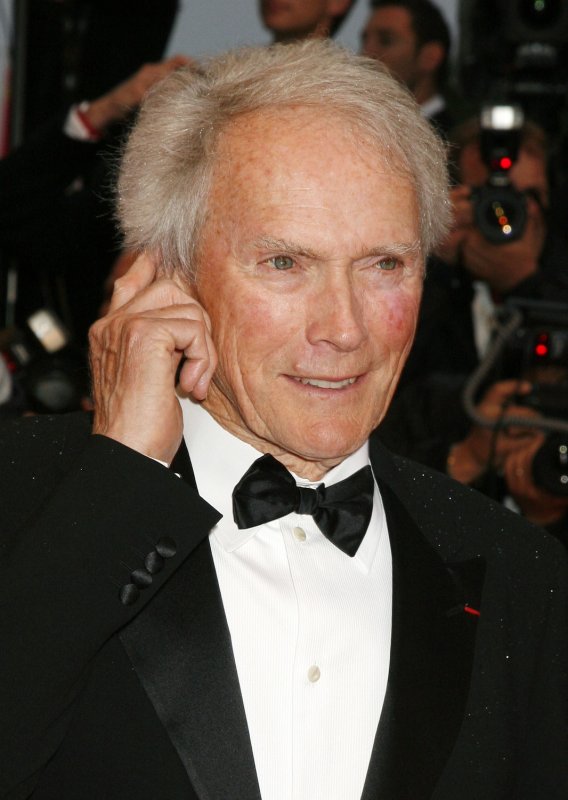Director Clint Eastwood arrives on the red carpet before a screening of the film "The Exchange" during the 61st Annual Cannes Film Festival in Cannes, France on May 20, 2008. (UPI Photo/David Silpa) |
License Photo
LONDON, June 6 (UPI) -- Clint Eastwood says the lack of black U.S. soldiers in his film, "Flags of Our Fathers," was true to history but Spike Lee insists blacks fought at Iwo Jima.
Eastwood Thursday responded to Lee's recent criticism of the absence of black characters from Eastwood's World War II films, "Flags of Our Fathers" and "Letters from Iwo Jima." In Cannes to promote his World War II film, "Miracle at St. Anna," Lee said many African-American veterans were upset that "there was not one black soldier" in either of Eastwood's films.
Eastwood Thursday slammed Lee.
"A guy like him should shut his face," the Oscar-winning director told The Guardian.
"The story is 'Flags of Our Fathers,' the famous flag-raising picture, and they didn't do that," he said. "If I go ahead and put an African-American actor in there, people'd go, 'This guy's lost his mind.' I mean, it's not accurate."
Lee responded Friday in an interview with ABC News.
"First of all, the man is not my father and we're not on a plantation either," Lee said. "He's a great director.
"And a comment like 'a guy like that should shut his face' -- come on Clint, come on," said Lee. "He sounds like an angry old man right there."
Lee challenged Eastwood to tell blacks who fought at Iwo Jima "that what they did was insignificant and they did not exist."
"I'm not making this up. I know history. I'm a student of history. And I know the history of Hollywood and its omission of the one million African-American men and women who contributed to World War II."
Eastwood said when he made the Charlie Parker biography, "Bird," in 1988 Lee complained that a white director was making a movie about a black musician.














